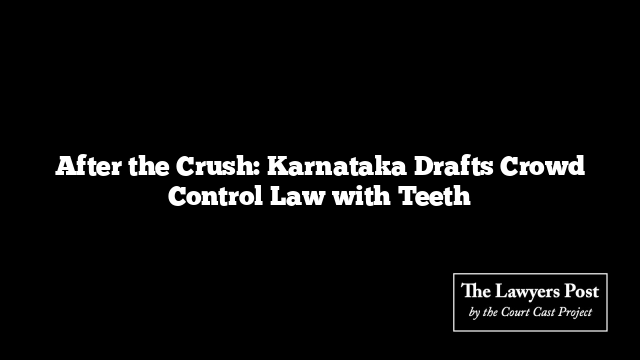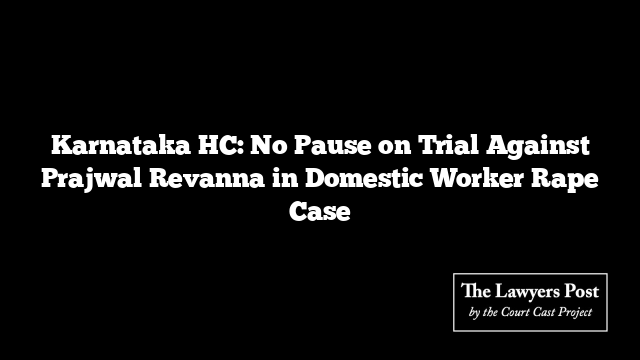In the aftermath of the deadly Chinnaswamy Stadium stampede that turned celebration into chaos, the Karnataka government is pushing ahead with a sweeping new law—one designed to rein in the disorder of mass gatherings and hold the powerful to account when things go fatally wrong.
Tentatively titled the Karnataka Crowd Control (Managing Crowd at Events and Venues of Mass Gathering) Bill, 2025, the legislation takes direct aim at the kind of unregulated public spectacles that cost 11 lives and injured scores more during Royal Challengers Bengaluru’s IPL victory event. This proposed law isn’t a symbolic gesture—it brings with it fines that sting and jail terms that bite.
A Law Born from Tragedy
The Bill sets out to fill what officials are calling a “legislative void”—a glaring lack of enforceable rules around who manages a crowd, how they do it, and what happens when they fail. It’s a response not just to a single tragedy, but to a systemic absence of safeguards at political rallies, public festivals, sporting spectacles, and high-attendance gatherings.
What the Bill Demands
Any organiser—whether a sports franchise or a circus promoter—planning an event expected to draw a large crowd must now seek prior clearance from the police. Authorities will have the power to approve, delay, shift, or scrap events altogether if public safety is at risk. Failure to do so won’t just draw a slap on the wrist—it could land offenders behind bars for up to three years, with fines as steep as ₹5 lakh in commercial cases.
While everyday organisers face fines up to ₹5,000 or similar jail terms, it’s commercial operators who are squarely in the crosshairs, especially when their profit-driven events lead to injury or death. In such cases, organisers will be liable for compensation, and if they don’t pay up, the State can recover the money by seizing and auctioning their property.
Religious Gatherings Exempted
Interestingly, the Bill carves out a significant exemption—religious events like jatras, rathotsavas, urus, and similar faith-based gatherings won’t be governed by this law, potentially drawing scrutiny over selective enforcement.
More Than Just Punishment
The draft law goes beyond punishment. It arms district magistrates and other authorities with the power to pre-emptively cancel events that may inflame tensions or threaten public order. It also allows courts to weigh “victim impact statements” during sentencing, and targets those who knowingly—or even unknowingly—aid in organising events that violate the rules.
There’s also a mandate for public awareness and official training, meaning this law isn’t just about cracking down, but about preparing better.
A Law with Layers
The legislation won’t override India’s broader criminal codes like the Bharatiya Nyaya Sanhita, 2023—it will operate alongside them. Government officers acting “in good faith” are shielded from prosecution, and the State retains the right to issue detailed rules following public notice and legislative oversight.
Expected to be tabled at the next cabinet meeting, this Bill is more than a policy tweak—it’s Karnataka’s attempt to ensure that mass gatherings are no longer managed on hope and prayer alone.





